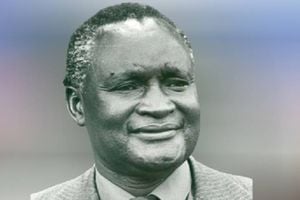Raila’s call for Security Council reform timely

Raila Odinga during the African Union Chairmanship debate at African Union Headquarters in Addis Ababa.
In the recent debate at the African Union Commission headquarters in Addis Ababa, Mr Raila Odinga made a compelling declaration: “The United Nations Security Council is a reflection of a bygone era; it is time for Africa and the Global South to claim their rightful place in global governance.” This statement encapsulates a critical and growing sentiment among many nations, particularly in Africa—the Security Council is outdated and inequitable in its structure and operation.
The council, established in 1945 after the Second World War, was intended to address the global security concerns of a vastly different era. At the heart of its design was the geopolitical realities of the time, with the five permanent members—China, France, Russia, United Kingdom and United States—being given veto power.
However, the world has changed dramatically since then, and the council’s structure no longer meets the complex demands of contemporary global governance. The gridlock in the council, particularly when major powers exercise their vetoes, often leaves global crises unresolved. An example is the Syrian conflict, where vetoes have prevented meaningful action to alleviate human suffering.
The issue raised by Mr Odinga goes beyond mere fairness or representation, it speaks to the efficacy and relevance of the council itself in 21st Century. While the world has shifted toward multipolar geopolitics, the council remains dominated by powers whose interests do not necessarily align with the global majority.
Strategic importance
Africa, despite its immense population, strategic importance, and active contributions to global peacekeeping efforts, remains underrepresented. Exclusion of the continent, home to more than 1.4 billion people, from permanent membership in the council is untenable, particularly as African nations are more central to international security concerns than ever before.
From climate change and cyber threats to health crises like the Covid-19 pandemic, the global community requires a decision-making body that can act swiftly, inclusively and effectively. The veto system is a critical obstacle to timely responses as it can prevent action even in the face of overwhelming international support for intervention.
However, reforming the council is no simple task. Any change to the council’s composition or structure would require amendments to the UN Charter, which demands the approval of the very powers that benefit from the current system.
These members are unlikely to relinquish their privileges easily. Furthermore, the geopolitical rivalries between emerging powers, as well as regional tensions within Africa, complicate efforts to build consensus on reforms.
Ultimately, the call for reform is not merely about granting Africa and the Global South symbolic representation. A reformed council must reflect the shifting balance of power, with greater representation from the Global South, and put an end to the paralysis caused by the veto system. Only by embracing such reform can the council maintain its credibility and authority in addressing the security challenges of the 21st century. The time for change is now.
Dr Chebii Kiprono is a history lecturer at Alupe University. [email protected].





